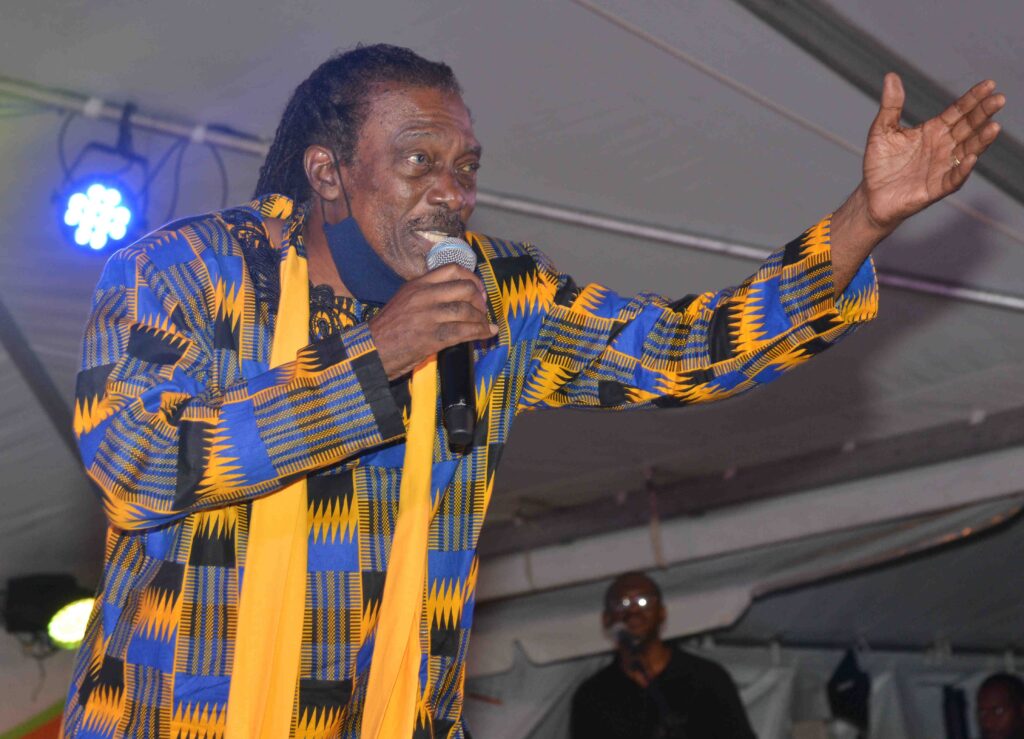The spirit of Barbados was alive last Saturday, March 22, as the Consulate General of Barbados in New York, in partnership with the Barbados Tourism Marketing Inc. (BTMI), officially launched the ‘We Gatherin’ 2025 series in Boston.
According to Consul General Lorenzo Harewood, the event, held at the Sorrel and Lime place, was a spectacular showcase of Barbadian culture, bringing together scores of Barbadians and friends of Barbados for an unforgettable experience.
“Attendees were immersed in the rich sights, sounds, and flavours of the island, enjoying pulsating local music, mouthwatering Bajan cuisine, and a vibrant marketplace filled with stalls owned by Barbadian entrepreneurs,” he said.
He noted that from handcrafted souvenirs to locally made products, the event provided a platform for businesses to connect with the diaspora and promote authentic Barbadian goods.
The Consul General said that the energy in the room was electric as Barbadians, young and old, reunited with friends, made new connections, and celebrated their shared heritage.
A major highlight of the evening was the exciting giveaways, including exclusive discounted travel packages and the grand prize won by Carson Straughn – a trip for two to Barbados. The winners were thrilled at the chance to visit their homeland and immerse themselves in all that the island has to offer.
Mr. Harewood stated that the successful launch marked the beginning of what promises to be an exhilarating ‘We Gatherin’ 2025’ series.
“With overwhelming support and enthusiasm from attendees, the celebrations are set to continue in Connecticut, and Philadelphia, and culminate in a grand finale in New York throughout April and May. Many attendees have pledged to follow the journey, eager to experience more of the warmth, culture, and togetherness that define the Barbadian spirit,” he remarked.
The Consul General added: “The partnership between the Consulate and BTMI underscores a shared commitment to strengthening connections between Barbados and its diaspora while promoting the island as a premier destination for both leisure and business.
“As the excitement builds, Barbadians across generations are encouraged to join the movement, return home, and take part in the national festivals and activities happening throughout 2025.”
During the event, a brief intermission provided an opportunity to recognise outstanding professional achievements. Mr. Harewood took to the stage to present the prestigious Professional Achievement Award to Professor Cardinal Warde, a distinguished faculty member at the Massachusetts Institute of Technology in the Department of Electrical Engineering and Computer Science.
Professor Warde is widely regarded as a leading expert in optical information processing and display technologies. His extensive contributions to the field include over 150 technical papers, co-editorship of a book, and co-authorship of three book chapters on optical materials and devices.
Beyond academia, his innovative work is reflected in 12 patents related to spatial light modulators, displays, and optical information processing systems, solidifying his influence in advancing cutting-edge optical technologies. (PR/GIS)

 Sports1 week ago
Sports1 week ago
 Business1 week ago
Business1 week ago
 Government2 weeks ago
Government2 weeks ago
 International3 weeks ago
International3 weeks ago
 Features3 weeks ago
Features3 weeks ago
 Government2 weeks ago
Government2 weeks ago
 Business3 weeks ago
Business3 weeks ago
 Business1 week ago
Business1 week ago

































